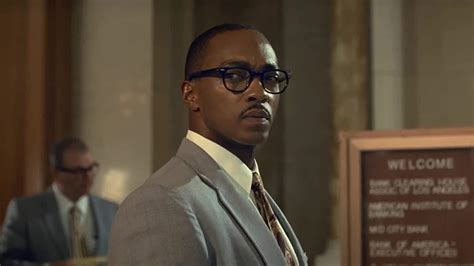A Quote by Joseph Kosinski
You want the film to be critically successful - you certainly want the film to be financially successful so that you can...well, because that's how movies like this are made, you know, they need to make money. But as a director, you can only make the movie that you want to make.
Related Quotes
I'm not trying to be self-serving, but you know, you get to Hollywood, and if you want to make something big and loud and dumb, it's pretty easy. It's very hard to go down there and make a film like 'Sideways,' which I thought was a great film. They don't want to make films like that anymore, even though that film was very successful.
The thing that I think a director has to have in order to make a movie really work, and to certainly make a film that feels personal, is that you have to have a sense of the feeling that you want to create in people, the tone which you want to tell the story, and the basic themes you want to come out. You can't compromise on those because you are then not making the movie that you are going to be good at telling.
If I give five flops, I won't get a job. You have to perform at the box office when you are at the top. No one is running a charity here. People are putting huge amounts of money to make movies, and they want the films to be successful. They have invested money in you, so it is your duty to make sure the film does well.
The thing that I think a director has to have in order to make a movie really work, and to certainly make a film that feels personal, which I hope this one does, is that you have to have a sense of the feeling that you want to create in people, the tone which you want to tell the story, and the basic themes you want to come out. You can't compromise on those because you are then not making the movie that you are going to be good at telling.
I get an opportunity to communicate with the audience about the movie that I've made. I get the chance to bring attention to the film that I've made. I care a lot about the movies that I make. I want them to reach an audience, and I want them to be successful. I promote nearly everything that I do, unless I've got some bad taste in my mouth.
I generally go into a movie with a very strong vision, with how I want to make the film, how I want to shoot the film, how I want to edit the movie, what I want the sound to sound like. So I have a very concrete idea even if I don't storyboard it, I know exactly what I want to do once I get into the sequence. Now having said that, I try not to let that slave me to the process. So if I do storyboard a sequence I don't necessarily stick to it if I discover more exciting things on set.
With a director it's all about the work; I'd work with a great director over - you know, I'm not the kind of actor who that doesn't go, 'I want to play this role.' It's more like, 'I want to work with this director,' regardless of what the role is because if it's a good director, you'll probably find a good role because it's a decent film. But a mediocre director will always make a mediocre movie.
When critics or people judge, I think it's harder to make a commercial, pop movie than it is to make a pretentious art film. It's harder to reach millions of people and satisfy them and make them happy. These films kind of get ghettoized, this genre because there are so many big, big movies that are such big hits, but aren't any good. The audiences, they're not judging the style of the director, or the execution of the film. They're just looking to be entertained. They want to escape from their reality, and that's why we make movies, to get people to escape from the realities.
I think a lot of people go into filmmaking thinking, "How can I make a career?" And so when they make their first film, they make it thinking, "Well, this'll be the one that gets me to the place where I can make the second film the way I want to make it, and that'll get me to the place where I can make $100 million on the third film." And I thought, "Well, if I put sustainability at the bottom of my priority list, then what opportunities is that going to free me up to pursue?" And that's what I've always done.





































